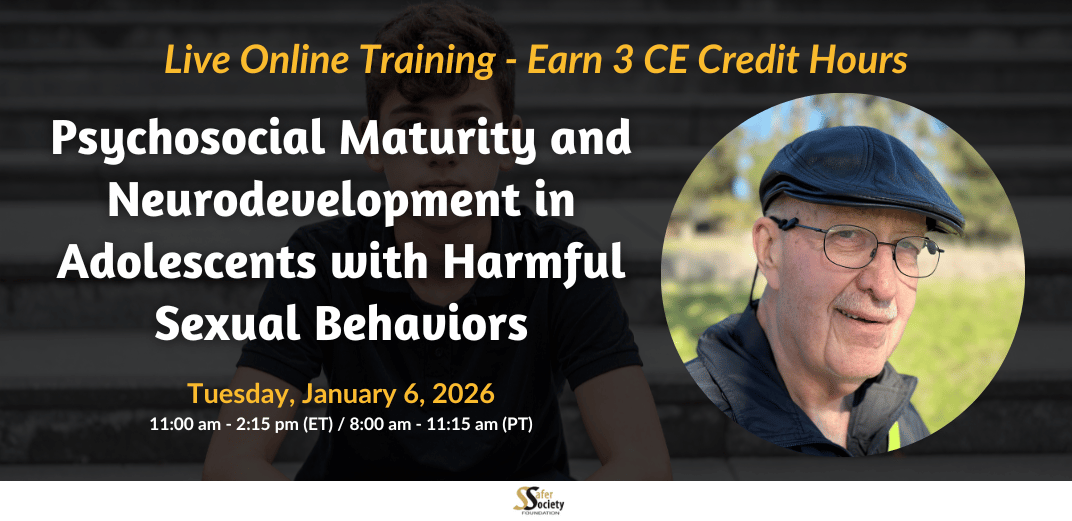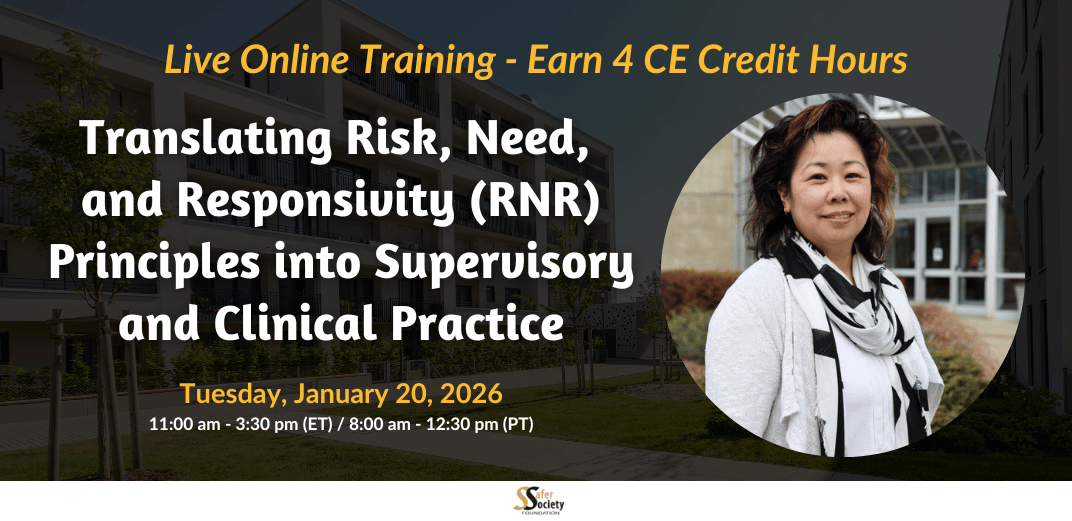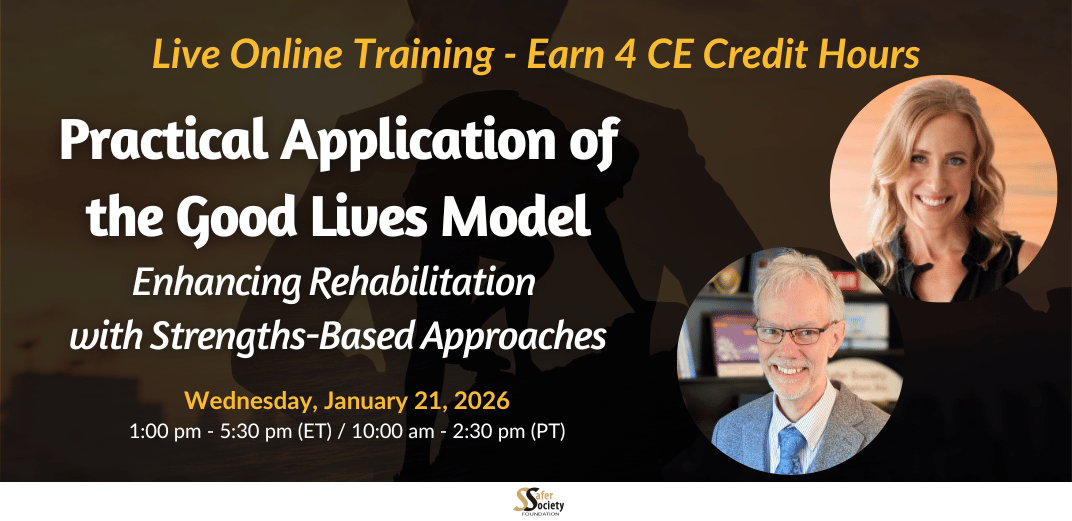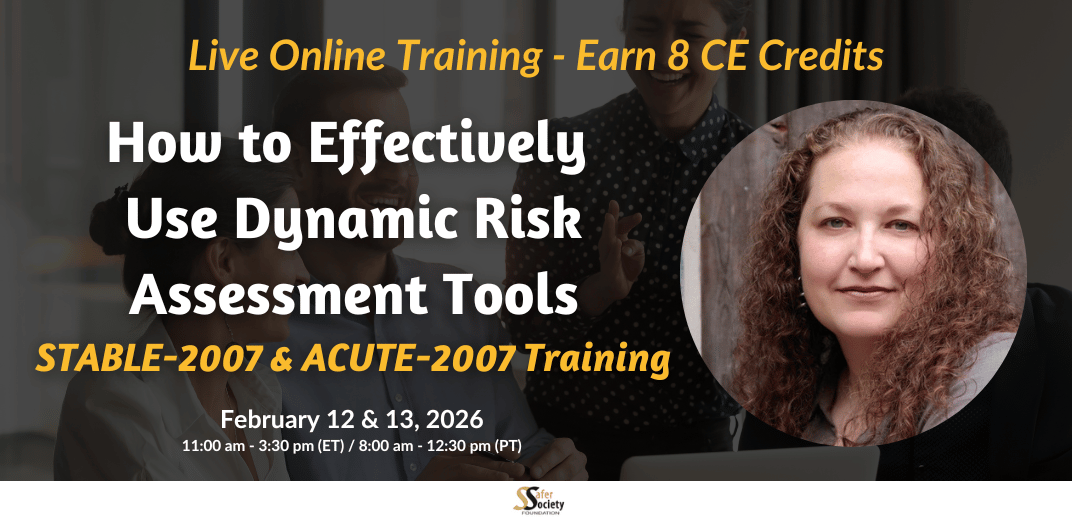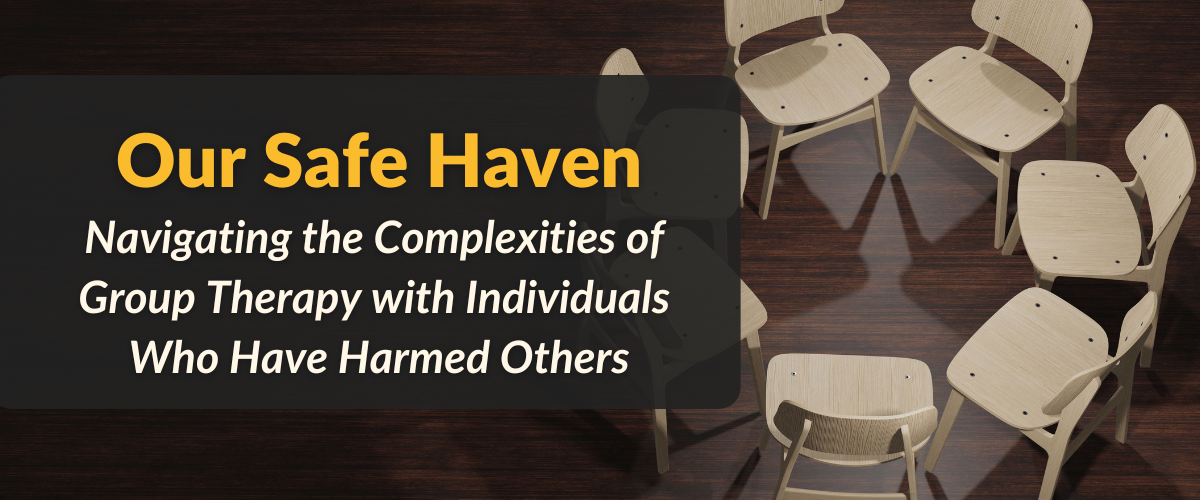
Our Safe Haven: Navigating the Complexities of Group Therapy with Individuals Who Have Harmed Others
In these Our Safe Haven sessions, we invite you to join Steven Sawyer and David Prescott to explore the complexities of group intervention, from addressing denial and minimization to managing difficult group dynamics and safeguarding the wellbeing of clinicians. Each session begins with a focused theme, evolving naturally into an engaging, attendee-driven conversation shaped by shared experiences and professional insights.


